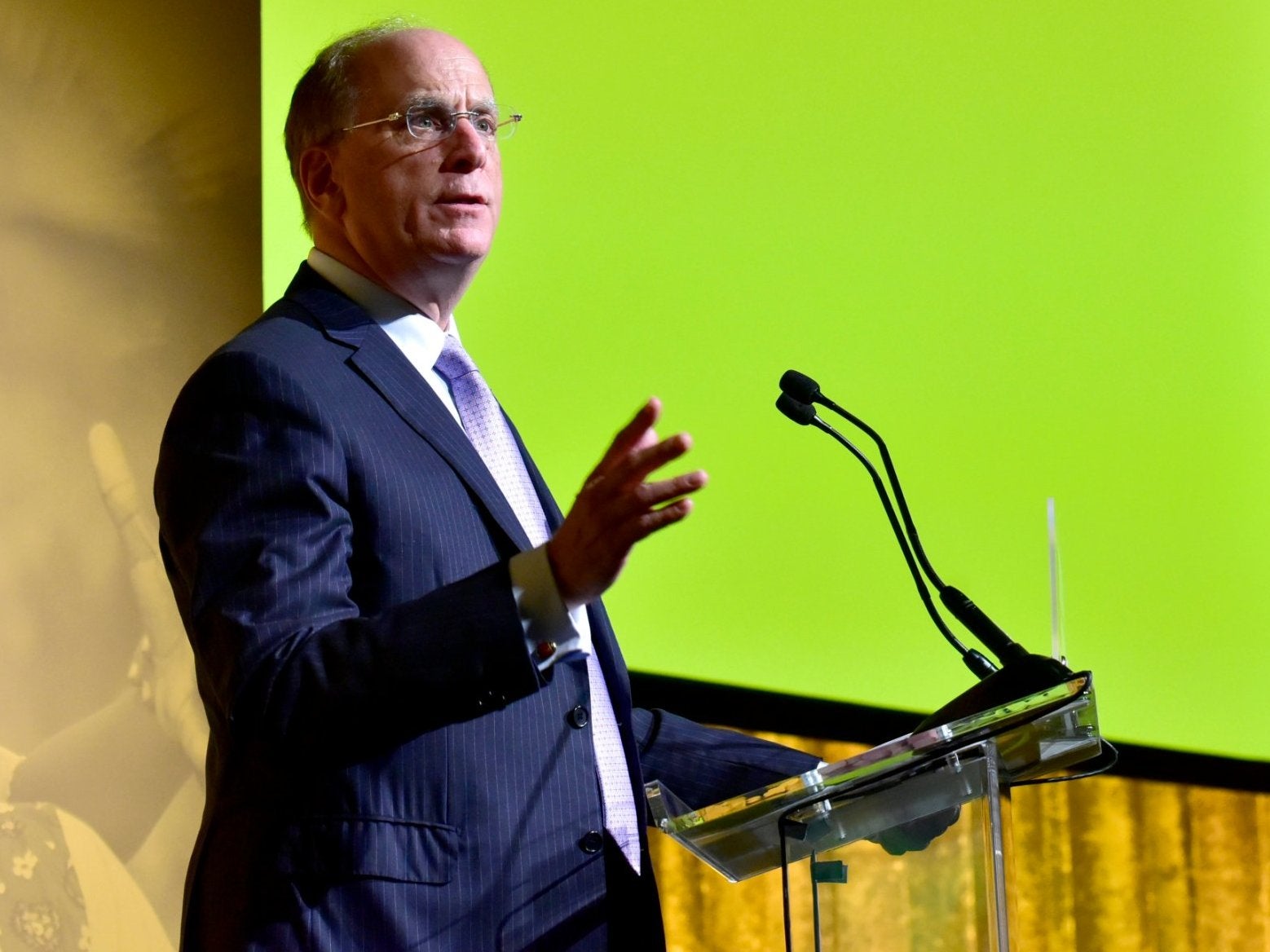BlackRock’s warning over climate proposals will disappoint activists
The world’s biggest money manager says it will back ‘proportionately fewer’ shareholder resolutions during the forthcoming AGM season, which is bad news for those seeking to force companies to power up decarbonisation, argues James Moore


Tough break for the climate?
BlackRock, the world’s biggest money manager, has warned that it is “likely to support proportionately fewer” climate-related shareholder proposals going into the 2022 AGM season. So it certainly looks that way.
But wait, it said “proportionately” and the number has been increasing. So is this as bad as it looks?
The company says it is unhappy with “the nature of certain climate-related shareholder proposals coming to a vote in 2022”. This requires some explanation.
In the US, the Securities and Exchange Commission, Wall Street’s regulator, has broadened the scope of permissible proposals that shareholders can file with the aim of addressing “significant policy issues”. This has driven the increase in shareholder motions I mentioned. They have been filed to tackle social issues as well as the climate crisis.
Examples of this could include motions calling on companies to decommission assets, or setting targets not just for their own emission reductions but for those of their customers and/or supply chains.
BlackRock says it is unhappy with some of them because they are “more prescriptive and constraining on management than in past years”.
“We do not consider them to be consistent with our clients’ long-term financial interests,” the group said of the new generation of climate resolutions.
So what happened to CEO Larry Fink stating that “climate risk is investment risk”? Because a heating planet isn’t consistent with their long-term financial interests either. To the contrary.
BlackRock insists that it sill believes in that. However, it argues that it has seen progress from companies and speaks warmly of “management proposals to approve their climate action plans or progress”.
“These proposals are a tool for companies seeking investor feedback on their approach to climate risk and the energy transition,” it says.
Presumably, this means BlackRock believes it could positively influence such proposals, perhaps turning a tepid tea green into a more polished emerald (look at your paint colour chart)?
The problem with this approach is highlighted by Follow This, an activist group pushing for improvements at oil majors. It said none of their “in-house” climate resolutions aligned with the Paris Climate Accords. So it filed its own. To be fair, some of them secured BlackRock’s support. During the last AGM cycle, the investor backed 47 per cent of the resolutions submitted by shareholders in total. Troublingly, that makes it a leader among big US money managers.
Some of the European institutions at the vanguard of decarbonisation efforts have backed nearly twice that number, recognising that a gradualist approach like BlackRock’s is insufficient to mitigate the economic and investment risk posed by rapid and irreversible climate change.
BlackRock also, inevitably, mentions Russian’s invasion of Ukraine, and the “near-term” challenge it poses. Reducing the reliance on Russian energy will, it believes, fuel the “need for investment in both traditional and renewable sources of energy”.
Traditional meaning fossil, one of the main drivers of the climate crisis.
Fink has stated that he believes Russia’s behaviour will ultimately catalyse a speedier adoption of cleaner energy sources. Trouble is, the voices loudly calling for aggressive new investment in fossil fuels are being heard. There have been disturbing signs that big oil is gearing up to provide it.
If that happens, things could get very nasty indeed. I believe a heating planet is every bit as dangerous as Putin.
Activists now face a dilemma. Knowing BlackRock’s stance, do they table strongly worded resolutions with the intent of forcing companies to fire up their climate progress, which will probably fail to attract the support needed? Or do they table something BlackRock would consider “well-worded” – which some would read as “weak” – in the knowledge that it will probably won’t help much towards securing a habitable planet?
Many would consider that a Hobson’s choice.
True, there hasn’t (yet) been any sign of the more progressive European managers back-pedalling. But while they have achieved much, it will require the Americans to join them for there to be any chance of mitigating the worst effects of the climate crisis.
BlackRock says it will still back some resolutions, but it is hard not to view its statement as a disappointment.
The uncomfortable fact is that it may require some of the investment risk posed by a heating planet to be made manifest for BlackRock, let alone its peers, to join the Europeans.
By then it may be too late.
Join our commenting forum
Join thought-provoking conversations, follow other Independent readers and see their replies
Comments
Bookmark popover
Removed from bookmarks